In death, Michael Jackson is proving just as enigmatic as he was alive. His death seems to have raised more questions than answers: What caused his death? Who will get custody of his children? Would the fifty-year-old Jackson have made it through the 50 concerts of his “This is It” tour? It seems fitting that the King of Pop has left us questioning even what the little we thought we knew about him; after all, in life he was as much a conundrum as a superstar. For the queer community, one of the biggest questions remains, was he one of us? Was Jackson gay? Was he transgender?
In life, some people were so confused by Jackson’s appearance and gender presentation they turned to online answer sites, asking, “What Was Michael Jackson’s Gender?” That WikiAnswers offered, “Male,” while the most popular Yahoo answer suggested, “Eunuch,” also reveals the lack of agreement on the subject.
Especially in the 1980s, Jackson performed masculinity like any good drag king; in the over-the-top way only someone who doesn’t—and maybe even can’t—embody those stereotypes can. On stage, the skinny little boy became a crotch-grabbing parody of hyper masculinity, taking on gang warfare (in Beat It) and the kind of deadbeat baby-daddy seen on daytime talk shows claiming, “The kid’s not mine!” (Billie Jean).
With tight lips loosened by his untimely death, we’re discovering there might be more truth in that early proclamation than previously thought. Recently reports have surfaced that Jackson isn’t the biological father of any of his three children.
While some trans men and women do start out in the drag world, I’m not suggesting Michael was trans because of his drag performances. Most trans people find the need to embody their preferred genders, not just perform them. No, I’m saying Jackson’s femininity was authentic while his masculinity remained illusionary and tenuous.
More on next page...
\\\
(continued)
In a 2006 article called Jacko Got His Gender Confused Again, news.softpedia.com claimed that while in France, Jackson went shopping wearing three inch stiletto heels, tight-fitting jeans, a coat, a huge hat and makeup. Although the article also admitted Jackson had been previously seen “draped in women's scarves and, in January, he donned an abaya—a traditional garb for Muslim women,” these incidents were painted as efforts by Jackson to duck ever-present paparazzi, not expressions of his true gender identity.
In her Bilerco Project posting on Jackson’s death, Michael Jackson: Goodnight, Sweet Prince…or Princess, lesbian author Patricia Nell Warren mused, “Like many of us, I've wondered. Was he gay or transgendered? Some of us have tried to claim him. But Jackson was never one who could be nailed down with an orientation or gender label...or any label, for that matter.”
Warren goes on to describe his video performance for his song In the Closet “had him looking just like a young tomboy dyke as he romanced a lipstick lesbian…And I always had the feeling that the teen girlfriend Jackson pursued through so many songs was really that elusive female side of himself that he finally decided to reveal through cosmetic surgeries.”
Numerous people, including Dr. Werner Mang, a German plastic surgeon, who, in 2004, revealed he saved Jackson’s nose with ear cartilage, have offered similar sentiment. Mang contended, “I think Michael Jackson wants to change from a black man to a white woman.” The doctor certainly wasn’t the first or last to share those concerns.
In fact, the examination of Jackson’s surgical alterations as they relate to race has been addressed in numerous arena’s, including at University of California, Berkeley where, in 2003, Joon Lee taught a course called, The Nth Race: Introduction to Transraciality. In describing the course, Lee wrote:
"Thanks to "advances" in medical and psychiatric technology, we are now able to view gender as a transformative aspect of life: we are not stuck in the sexed body with which we were born. However, our racial identity is still something that seems biologically inescapable, in spite of the now very rich and convincing theoretical history of its constructed, non-essential nature. While the history of transsexualism is marked by the potentially political affect of social transgression, the history of transraciality speaks to us from advertisements for skin-blanching creams, history-denying acts of racial passing, and community-betrayal. Why else the negative reaction—from disgust to ridicule—to Michael Jackson’s plastic surgery escapades?"
More on next page...
\\\
(continued)
Just as there are those who are born with external sex organs that do not jive with the internal sense of gender identity, there are apparently people who do not feel the color of their skin truly expresses their racial identification and some of those people find ways to transition. Undoubtedly there are others who attempt such border crossings not for self-authenticity but to escape the confines of the subjugation culturally assigned their biological heritage.
Naturally, when the direction of the transformation is from that of minority to majority and/or from a discriminated class to the powerful class, it can raise some uncomfortable questions and stir conflicted emotions. We see this happening around FTM transitions, when some feminists question whether trans men are traitors to the cause, either phobic of their own minority status or seeking to better their social position via their transformation instead of attacking the political institutions, which maintain the power imbalance.
While these critiques are necessary, so too is an understanding that most individual trans people are driven not by political pressures but by their own bodily dysmorphia. And that’s what seemed to propel Jackson. He was an example of going too far, a cautionary tale of how unbridled plastic surgery can surpass a point in which the “patient” no longer looks like a real human being. There’s even a whole website dedicated to how Jackson’s many faces compare with such non-human entities as Judy Jetson, the Creature of the Black Lagoon, and Japanese Anime and Planet of Apes characters.
There’s a point in which how we think our bodies should look transcends the obsessive body modification inherent in say professional bodybuilding, gender transitions or tribal rituals and reaches a place of mental illness—think those suffering from anorexia nervosa. It seemed that long after Jackson reached a point where outside viewers thought he’d met his desired goal (projected to be looking like his friend Diana Ross) he was compelled to undergo more modifications.
In life, Jackson seemed to bear the brunt of our collective imagination and discomfort about intersections of race, gender, and sexuality. In queer theory terminology, Jackson seemed to trouble gender, race and sexuality.
More on next page...
\\\
(continued)
And his sexuality was troubling. Is it rude to say Jackson seemed to be a sexual deviant? That whatever his orientation or his desires or his actions, they seem to be clearly outside the “norm,” outside what mainstream society expected of him? Unlike some celebrities about whom rumors fly, Jackson seemed incapable of maintaining a beard, keeping a socially acceptable relationship going as a cover for his true predilections—whatever those are.
Despite what many people think, pedophilia is not a sexual orientation. It’s a mental illness. As WebMD points out: “while some pedophiles may prefer boys over girls, or vice versa, it's not so much about gender as it is about age… Typically, pedophiles have trouble relating to people their own age. They need to feel they have power and control in a relationship, which is easy with children.”
So, while it’s hard to talk about Jackson without addressing the allegations against him, those tell us little about his sexuality. Certainly Jackson had difficulty relating to most adults and it does seems undeniable that he identified with children in a way that our society has come to think of unnatural and perverse for a grown man. But at least some of that has more to do with our societal sexualization of children than Jackson’s actions per se.
Our culture also has a strange way of demonizing the male gaze, particularly when it comes to male attentiveness to children. When I transitioned from female to male, one of the lessons I had to learn quickly was not to interact with children the way women do: smiling, waving, engaging children in grocery stores and parks, talking to moms about how cute their kids are. In a male body, those interactions were suddenly creepy and suspicious. It’s difficult in our current environment for a child-less man to surround himself with children or childlike things without being suspected of pedophilia.
None of this means I doubt the validity of the allegations against him. Just that pinning down Jackson’s sexual orientation seems more difficult than pointing to his preferred gender or racial expressions—both which seemed to be trans identified.
In a lot of ways, the “Man in the Mirror” seemed to reflect our cultural expectations of race, gender and sexuality. Under hot stage lights and plastic surgeon’s scalpels, Jackson‘s public personae attempted to excise those demon stereotypes.
In fact, Jackson seemed to want to completely transcend race, gender and sexuality, to move beyond those external elements of humanity that we use to segregate and oppress others. Erasing his difference came at a cost but it also helped Jackson embrace the essence of the universal human experience. In death—the final transition common to us all—he may have finally achieved that goal.
Trans journalist Jacob Anderson-Minshall wrote the syndicated column, TransNation (2004-2009) and co-hosts the radio show, Gender Blender, on kboo.fm.
{C}
Read more of Jacob's articles here!





























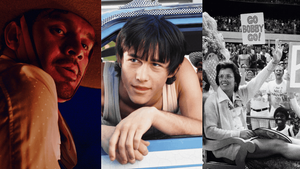








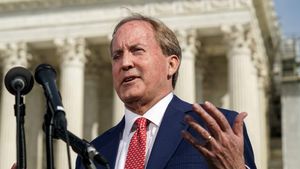


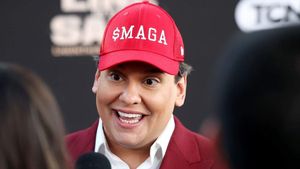




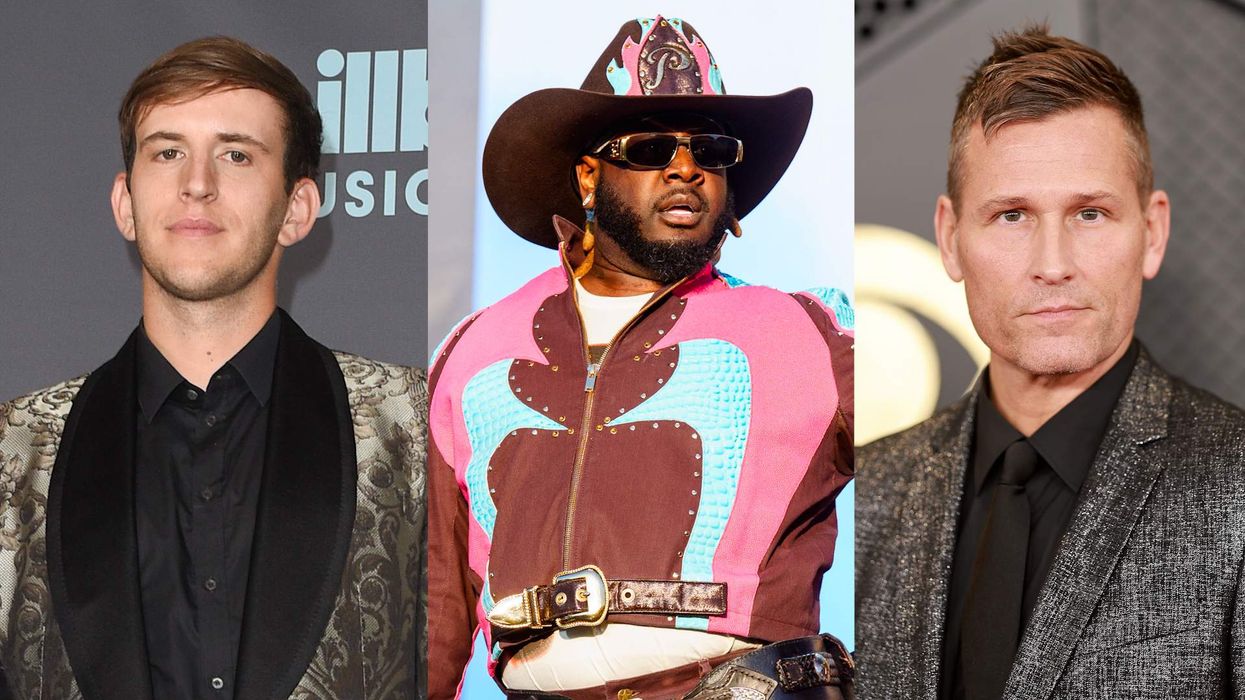

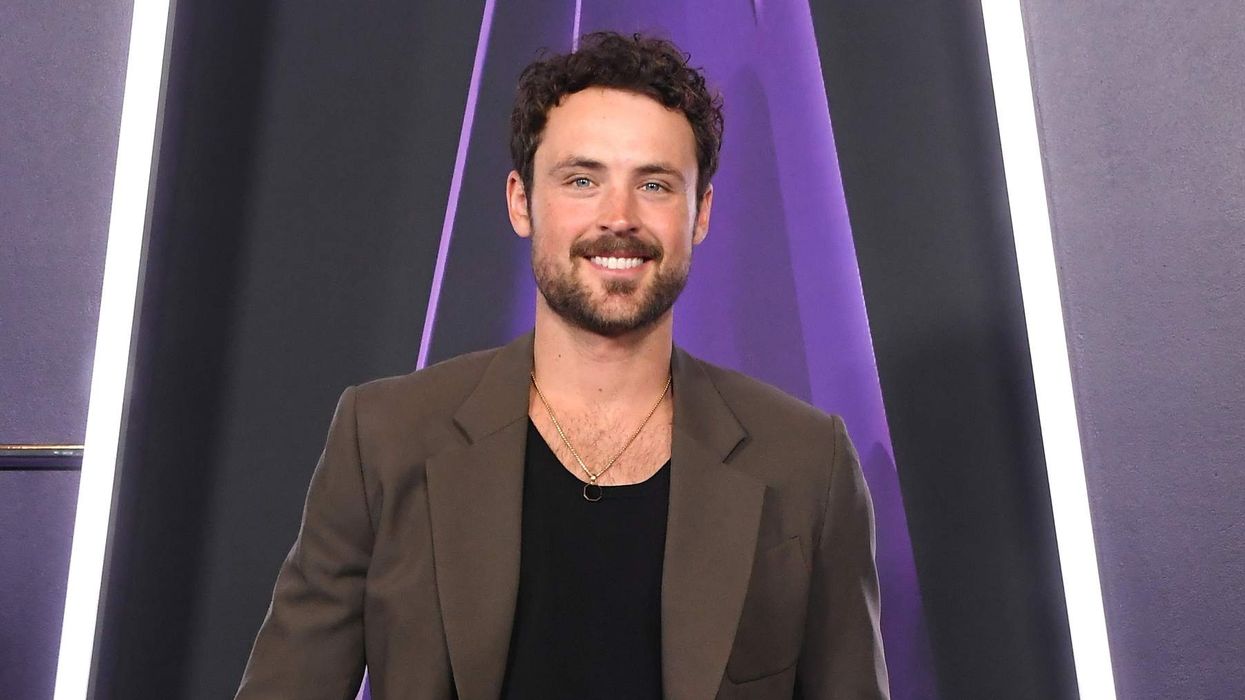
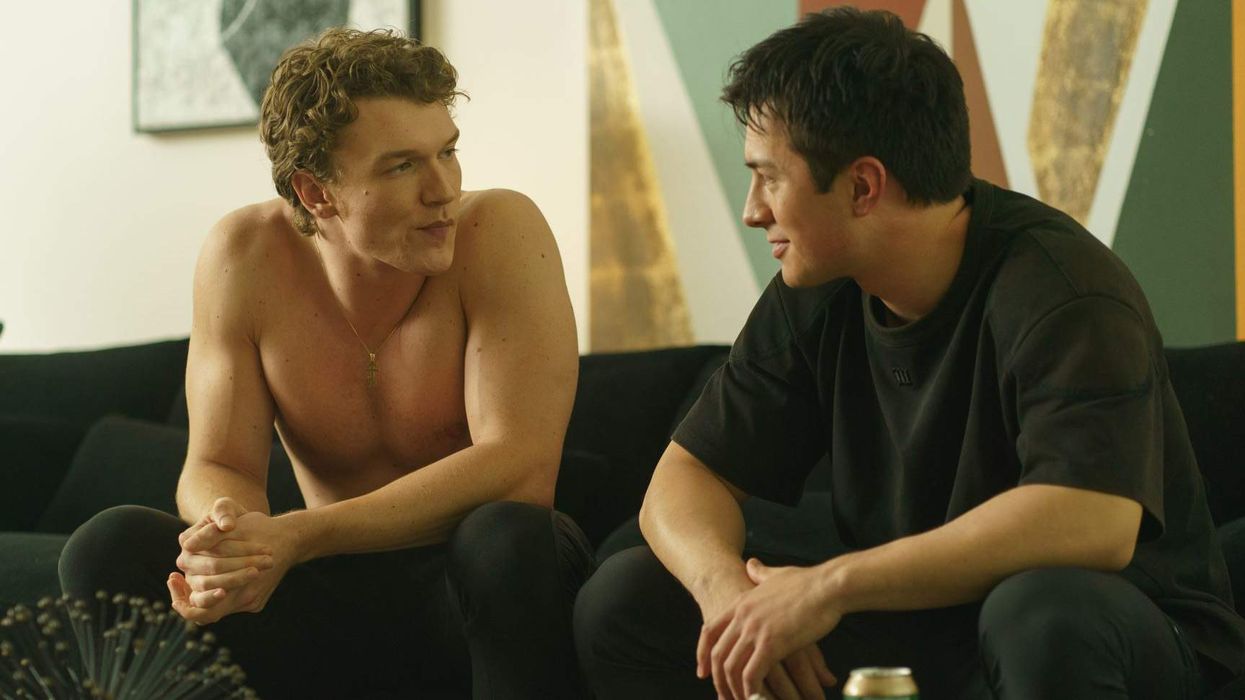

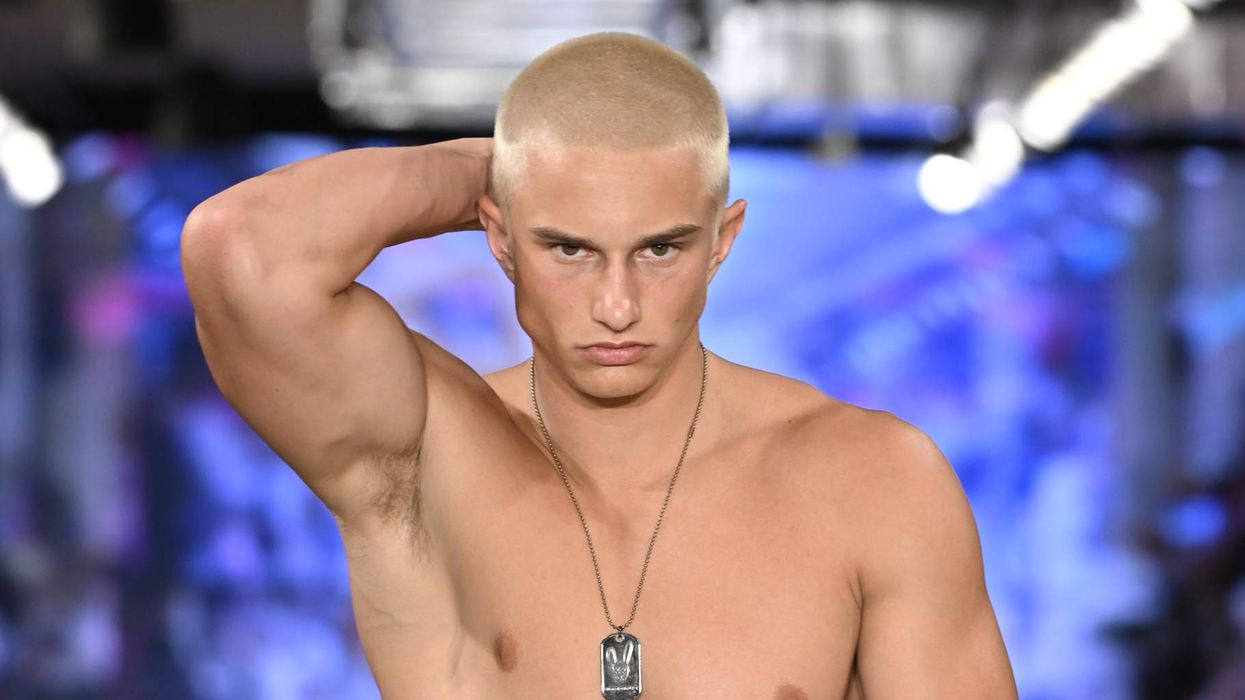



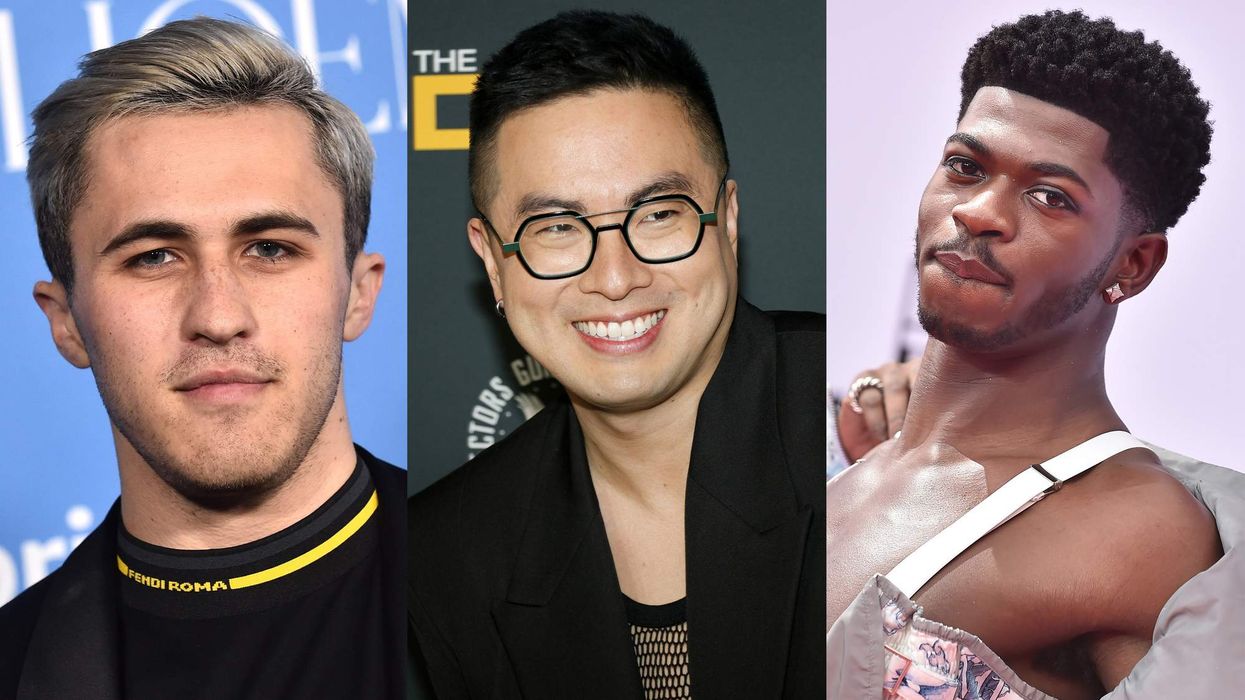































 Cindy Ord/Getty Images
Cindy Ord/Getty Images























